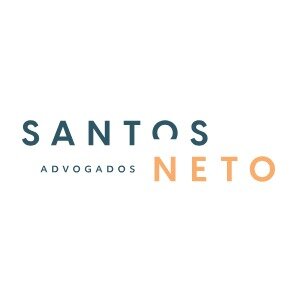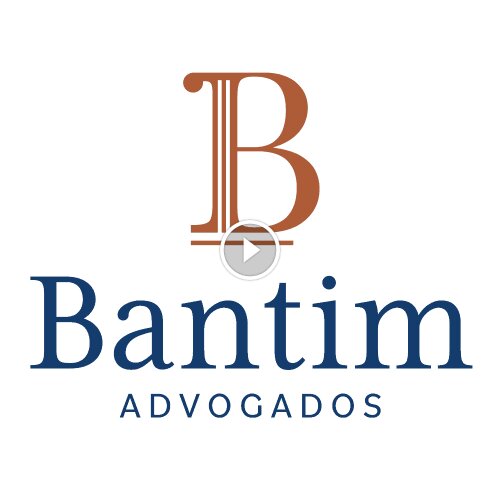Best Structured Finance Lawyers in Brazil
Share your needs with us, get contacted by law firms.
Free. Takes 2 min.
Or refine your search by selecting a city:
List of the best lawyers in Brazil
About Structured Finance Law in Brazil
Structured finance refers to highly complex financial instruments offered to borrowers with unique and sophisticated financing needs. In Brazil, structured finance plays a vital role in the capital markets, providing funding solutions that go beyond traditional bank loans. These arrangements often involve securitization, project finance, and derivatives, with a special focus on creating tailor-made structures to reduce risk and enhance returns for both issuers and investors. The Brazilian legal framework for structured finance is robust, with laws and regulations that ensure market integrity, investor protection, and transparency.
Why You May Need a Lawyer
Navigating the structured finance landscape in Brazil can be challenging due to its regulatory complexity and the high value of the transactions involved. People and companies may require legal assistance in situations such as:
- Structuring securitization deals involving receivables or real estate assets
- Setting up investment funds targeting private and public infrastructure projects
- Negotiating and drafting derivatives and swaps agreements
- Ensuring compliance with local regulations and reporting requirements
- Managing risks and legal exposure related to cross-border transactions
- Resolving disputes arising from structured finance arrangements
Legal counsel ensures proper structuring, compliance with all legal requirements, risk assessment, and smooth transaction execution.
Local Laws Overview
There are several key aspects of Brazilian laws governing structured finance:
- Regulatory Framework: The main regulatory bodies include the Brazilian Securities and Exchange Commission (CVM), Central Bank of Brazil (BACEN), and regulatory measures from the Brazilian Monetary Council (CMN).
- Securitization: Rules for securitization vehicles are set out in Law 9.514/97 (real estate receivables) and Law 11.076/04 (agribusiness receivables), among others.
- Fundo de Investimento em Direitos Creditórios (FIDC): Investment funds dedicated to credit rights, governed by CVM Instruction 356, are widely used for financing in different sectors.
- Project Finance: Legal provisions enable non-recourse or limited-recourse financing for infrastructure and energy projects, often through public-private partnerships (PPPs) regulated by Law 11.079/04.
- Taxation: Tax treatment varies depending on the structure, with specific rules for withholding tax, value added tax (ICMS), and service tax (ISS) that can significantly impact the cost and viability of transactions.
- Bankruptcy and Insolvency: Creditor rights and asset segregation rules are crucial, especially in case of debtor insolvency or bankruptcy, under Law 11.101/05.
- Anti-Money Laundering: All structured finance operations are subject to strict anti-money laundering controls under Law 9.613/98.
Frequently Asked Questions
What is structured finance?
Structured finance involves complex financial instruments designed to address specific risks and financing needs, such as securitization of assets, project finance, and derivatives.
What are the most common structured finance products in Brazil?
Some of the most common are securitization of receivables (via CRI, CRA, and FIDC vehicles), project finance for infrastructure, and derivatives for hedging and investment purposes.
Who regulates structured finance in Brazil?
The primary regulators include the CVM (for securities), BACEN (for banking), and the CMN, each responsible for different aspects of structured finance transactions.
What is an FIDC?
FIDC stands for Fundo de Investimento em Direitos Creditórios, which are investment funds that purchase and manage receivables, providing liquidity to originators and access to attractive assets for investors.
What are CRI and CRA?
CRI (Certificates of Real Estate Receivables) and CRA (Certificates of Agribusiness Receivables) are securitization instruments backed by real estate and agribusiness receivables, respectively.
When is legal assistance essential in structured finance?
Legal support is critical when structuring deals, drafting contracts, ensuring regulatory compliance, managing tax implications, and during dispute resolution.
Can foreign investors participate in Brazilian structured finance transactions?
Yes, but they must comply with specific registration and reporting requirements set by the CVM, BACEN, and comply with foreign exchange regulations.
How are risks managed in structured finance deals?
Risks are managed through asset segregation, credit enhancement, proper documentation, due diligence, and, often, the use of insurance or guarantees.
Are there tax incentives for structured finance vehicles?
Yes, certain securitization vehicles and investment funds may qualify for tax exemptions or reduced rates, depending on the investor profile and deal structure.
What happens if the originator of the assets goes bankrupt?
Brazilian law provides for asset segregation in many securitization structures, aiming to protect investors' rights and isolate securitized assets from the originator’s bankruptcy estate.
Additional Resources
For further information and support, the following resources can be helpful:
- Brazilian Securities and Exchange Commission (CVM): Provides regulations, investor information, and updates on capital markets activities
- Central Bank of Brazil (BACEN): Regulator for financial institutions and certain financing instruments
- National Monetary Council (CMN): Sets monetary and financial policy
- Brazilian Financial and Capital Markets Association (ANBIMA): Offers guidance, market statistics, and best practices
- Brazilian Association of Securitization Companies (ABSecur): Represents entities active in securitization markets
- Specialized law firms and legal professionals with expertise in structured finance
Next Steps
If you need legal assistance in structured finance matters in Brazil, consider the following steps:
- Identify your specific needs and objectives related to structured finance
- Gather all relevant documents and financial information about the intended transaction
- Consult with a lawyer or law firm specializing in structured finance to assess the risks and design the appropriate legal structure
- Ensure that your legal counsel is familiar with Brazilian regulatory and tax requirements
- Follow through with due diligence, regulatory filings, and proper documentation as guided by your legal advisor
- Stay updated on regulatory changes and best practices in the Brazilian structured finance market
A knowledgeable legal advisor will not only protect your interests but also help you leverage structured finance as a powerful tool for funding and investment in Brazil.
Lawzana helps you find the best lawyers and law firms in Brazil through a curated and pre-screened list of qualified legal professionals. Our platform offers rankings and detailed profiles of attorneys and law firms, allowing you to compare based on practice areas, including Structured Finance, experience, and client feedback.
Each profile includes a description of the firm's areas of practice, client reviews, team members and partners, year of establishment, spoken languages, office locations, contact information, social media presence, and any published articles or resources. Most firms on our platform speak English and are experienced in both local and international legal matters.
Get a quote from top-rated law firms in Brazil — quickly, securely, and without unnecessary hassle.
Disclaimer:
The information provided on this page is for general informational purposes only and does not constitute legal advice. While we strive to ensure the accuracy and relevance of the content, legal information may change over time, and interpretations of the law can vary. You should always consult with a qualified legal professional for advice specific to your situation.
We disclaim all liability for actions taken or not taken based on the content of this page. If you believe any information is incorrect or outdated, please contact us, and we will review and update it where appropriate.
Browse structured finance law firms by city in Brazil
Refine your search by selecting a city.














